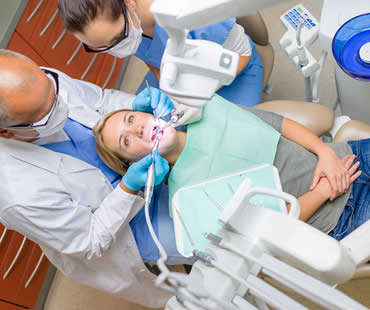
Surgery to remove wisdom teeth is one of the most common procedures that oral surgeons and dentists perform. It is important to follow your doctor’s instructions afterwards for the best chances of quick and complete recovery. Here are some tips for taking care of yourself after wisdom tooth extraction.
Watch your diet:
Your dentist will give you a list of suggested foods you can it after surgery, and ones to avoid. Stick with soft or liquid foods for the first couple of days, and do not eat hard or sharp foods like chips. Avoid carbonated drinks, hot beverages, and spicy foods because they can irritate your surgery site. After the first few days, begin introducing your regular diet as is comfortable.
Take your medications:
You will likely receive a prescription for painkillers to help relieve discomfort, as well as reduce swelling. This in turn can lower your risk for infection too. Take your medication as prescribed by your dentist for the optimum results. If your extraction is simple, prescription medication may not be required. You can take over-the-counter medications if your dentist agrees and you follow the directions on the label. Do not take aspirin, however, because it can thin your blood and increase bleeding at your extraction site.
Brush carefully:
Instead of brushing with your toothbrush, gently wipe the site with clean, wet gauze. Rigorous brushing can hurt the healing process, and you should even avoid rinsing your mouth for at least 24 hours after surgery. On the second day, you can rinse your mouth gently with salty water. Do not spit forcefully, which can dislodge the blood clot on your extraction site. Also, do not rinse with mouthwash that contains any alcohol.
Avoid alcohol and tobacco:
Drinking alcohol may thin your blood, prevent clotting, and delay healing. Smoking can have similar effects, as well as dislodge the clot when you inhale on a cigarette. For the best chances of healing, avoid these products for at least 24 hours after wisdom tooth extraction.
Schedule your appointment at our Lawrence MA dental office
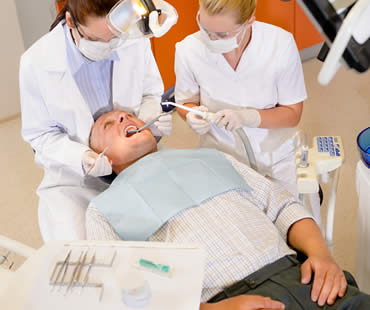
Your third molars, or wisdom teeth, are usually the last to make their appearance in your mouth. Some people don’t even have them break through at all. Whether or not they erupt, they can wreak havoc in your mouth if there isn’t enough room for them. If they become impacted, removal becomes even more important.
Your dentist will monitor your wisdom teeth through examinations and X-rays, and will recommend extraction if it appears they may cause any complications. Some dentists suggest removing them even if they aren’t impacted, as they can be difficult to clean and therefore prone to decay. Wisdom teeth may even get infected, requiring immediate medical attention. Symptoms of infected wisdom teeth can include:
- Pain in the tooth and gums
- Gum bleeding
- Gum inflammation
- Swelling in the face and jaw
- Headaches
- Bad breath
If your dentist says you need to have your wisdom teeth extracted, don’t put it off because it is better to have them removed before further complications occur. Usually, you will be referred to an oral surgeon for extraction. If only one tooth is involved, local anesthesia may be sufficient. The removal of multiple wisdom teeth typically requires general anesthesia, and is a day surgery so that you can return home afterwards.
It is important for you to follow your doctor’s instructions after tooth extraction to avoid problems. Your activities might be restricted for the first day or two, ice or heat can be helpful, and care should be taken if stitches are present. You will also be given a list of foods that are suggested during your recovery. If you follow all of your doctor’s advice, you can be expect to return to your normal activities soon and no longer have to worry about any problems those teeth might cause.
If you live in the Lawrence MA area contact us today

Age, bad habits, and food and drink choices can all add up to be hard on our teeth. If you are unhappy with your smile and wish you could improve it, consider cosmetic dental procedures. Cosmetic dentistry offers a variety of options for restoring your smile.
Teeth whitening
One of the most popular cosmetic dental procedures, teeth whitening can either be performed at your dentist’s office or at home. Methods used by your dentist work quickly and can provide dramatic results, but many patients are very pleased with home methods as well. Home treatments may be as simple as using products you purchase at your drugstore, or your dentist can provide customized bleaching trays for home use.
Bonding
Tooth-colored resin can be applied to your teeth to correct chipped, broken, stained, or decayed teeth in a single dental visit. The resin is molded onto the surface of your damaged tooth, shaped, and then polished to match your other teeth.
Veneers
If you’re looking for a long-lasting and stain resistant solution to damaged teeth, porcelain veneers are a good choice. These thin custom shells are adhered to your teeth to cover them so that they provide a beautiful smile.
Composite fillings
A material called composite resin is used to restore decayed teeth or to reshape your teeth to improve their appearance. Composite fillings can correct minor imperfections like a chipped tooth, or it can restore a whole tooth like a molar to a fully functional tooth.
Inlays and onlays
For large cavities or cracks in your back teeth, inlays and onlays may be used instead of fillings. These tooth-colored restorations are created in a laboratory, and then adhered to your teeth so they fit perfectly.
Cosmetic dentist in Lawrence, MA
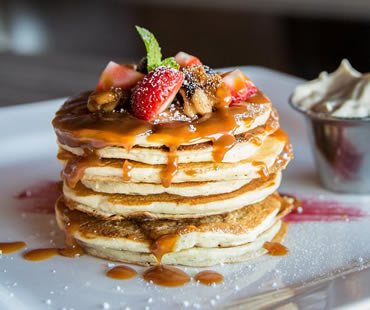
What you eat and drink can affect your oral health. A balanced diet will boost your body’s natural immune system, helping to lower your risks for oral problems. There are also certain foods and drinks that you should avoid in order to pave the way for healthy gums and strong teeth. Read on to learn how to ensure that your smile is safe and strong.
Cut down on snacks
Try to limit snacking between meals. The more often you eat, the more bacteria is stimulated and more acid is created. It is especially harmful to snack on sweet or starchy foods, which can harm your teeth and gums more quickly.
Limit sugar
Avoid foods and drinks that are high in sugar. It can stick to your teeth and if not removed promptly and thoroughly, can lead to tooth decay.
Watch what you drink
Drink plenty of water, and avoid sodas and fruit juices. Both of these can be sugary and acidic, which can harm your tooth enamel and cause decay.
Maintain a healthy diet
Try to eat a balanced diet consisting of the five major food groups. A well-balanced diet provides the vitamins, minerals, and other nutrients that your teeth and gums need. Fresh vegetables and fruits, and foods rich in calcium, are good choices for your oral health.
Practice good oral hygiene
Contact our Lawrence, MA dental office to learn about good dental hygiene techniques that will help you prevent tooth decay and gum disease. Brush your teeth at least twice a day, floss daily, and see your dentist for regular checkups.
Schedule your appointment at our Lawrence, MA dental office
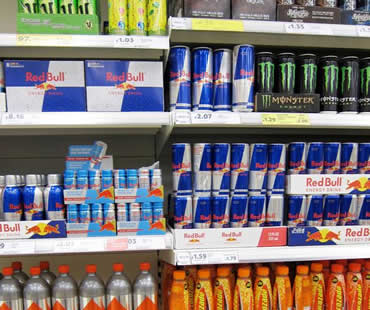
Though sports drinks and energy drinks may provide refreshment after a workout or keep you awake to study, they can also do serious damage to your teeth. People often think of these drinks as healthy alternatives to soda, but that’s not the case. In fact, research shows that these beverages are up to 10 times worse for your oral health than cola.
The issue with sports and energy beverages comes from the high acidity. Manufacturers add acid to these drinks to balance the sugar. Even more than soft drinks, the acid in sports and energy beverages can erode tooth enamel, which increases the odds of cavities. Once teeth are weakened by decay, you become more susceptible to future problems down the road.
Another reason sports and energy drinks are problematic is the way people consume them. Because most individuals sip on them throughout the day, teeth are continuously exposed to the acid in the beverages. To minimize the risks to your oral health, consider these tips:
- Use a straw when you consume these beverages because it restricts the amount of liquid that gets on your teeth.
- Chew sugar-free gum, which promotes saliva production and rinses the acid from your teeth.
- Brush your teeth right after drinking sugary beverages to remove any residue and keep teeth healthy.
- Make H2O your first choice. Consuming lots of water and limiting intake of sodas, sports beverages, or energy drinks will help you stay hydrated and promote good oral health.
Family and general dentist in Lawrence, MA
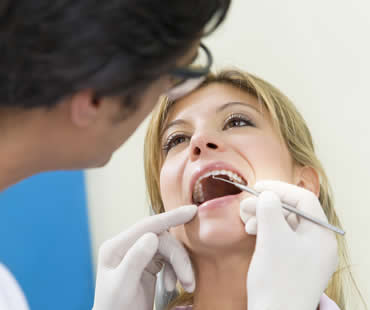
Brush and brush and brush, but you probably will not be able to get rid of all the plaque on your teeth. Even with regular brushing, some amount of plaque will build up on your teeth and turn into a hard substance called tartar. It simply can’t be removed without professional help.
What is tartar?
Tartar is a hard, yellow or brown deposit that forms on your teeth both above and below your gum line. Any food particles remaining in your mouth after eating will breed bacteria, which creates a thin film on your teeth called plaque. Any plaque that isn’t removed with brushing and flossing will harden to create tartar.
Is it harmful?
Tartar makes the surface of your teeth rough, which attracts food particles and therefore accelerates tartar formation. If you allow tartar to continue building up, your teeth will become discolored and your gums will be at risk. You will likely develop gingivitis, in which your gums become swollen and red. They will bleed easily and become painful, and eventually can lead to tooth loss. Advanced gum disease is even linked to higher risks of stroke, heart attack, and lung disease.
How is it removed?
Tartar is too hard and stubborn to be removed with regular brushing. The only effective way to eliminate tartar is by visiting your dentist and having it removed using professional equipment. This procedure is commonly called scaling.
Can I prevent tartar buildup?
Regular brushing at least twice daily with a fluoride toothpaste can help reduce tartar formation. Unfortunately, even with proper dental hygiene, plaque buildup is inevitable over time and will become tartar. Schedule regular checkups with your dentist to have professional cleanings performed.
We look forward to seeing you in our Lawrence, MA dental office










